
The Ministry for the Future: A Novel
by
Kim Stanley Robinson
Published 5 Oct 2020
The guy watched us come up to him and didn’t move an inch, didn’t say a word. It was a little weird, I didn’t like it. Edmund got in the guy’s face and told him to leave. The guy said to Edmund something like, You fuckers are burning up the world with your stupid games. Edmund laughed and said, “Dost thou think because thou art virtuous, there shall be no more cakes and ale?” We laughed at that, but then this guy hit Edmund with the chunk of driftwood he was holding, so fast we had no time to react. Edmund went down like a tree, didn’t get his hands up or anything, just boom. He had been cold-cocked. The guy held his piece of wood out at us and we froze. Then he tossed it at us and took off right into the lake, swimming straight out into the night.
…
They were still selling and shipping their coal, and Japan was still importing it and burning it, among others. Russia and Australia were still exporting coal where they could. Despite all the sudden shifts, carbon was still being burned. Oh yes; to the tune of twenty gigatons a year. Did you think that because Arabia was virtuous, there would be no more cakes and ale? In fact, there was no quick end in sight. The image of a bubble bursting was apt in some respects, illusory in others. People still needed electricity and transport. Money still ruled, fire sales still sold carbon. The bubble that was bursting might still be the biosphere itself. The battle for the fate of the Earth continued.
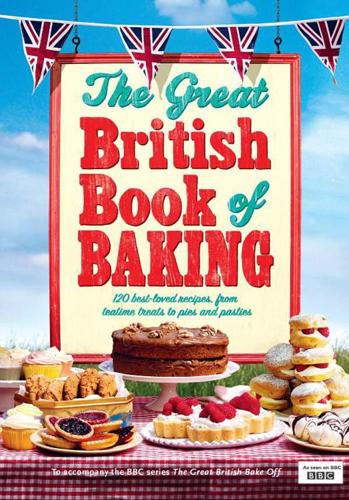
Great British Book of Baking
by
Linda Collister
Published 19 Aug 2010
A wealth of stories are told about the origins of the likes of ‘dumb cakes’, involving the secret, silent carving of initials into the cake, or sleeping with pieces under the pillow to reveal who a young girl would marry. Early wedding ‘cakes’ were possibly breads which were broken over the bride’s head, or sweetened buns stacked up in an ancient version of a croque en bouche, over which the newlyweds would attempt to kiss: success meant many children. Shakespeare, in Twelfth Night, alluded to ‘cakes and ale’ as a symbol of the good life; and the gratifying nature of cakes was often frowned upon by the Puritans of Oliver Cromwell’s era, who even tried to ban Christmas feasting. It wasn’t until Victorian times that the Christmas cake as we know it became an integral part of the celebrations. Over hundreds of years, regional recipes, often with evocative names like fat rascals and singin’ hinny, the famous Northumberland griddle cake, have been handed down through generations and show the influence of local produce.
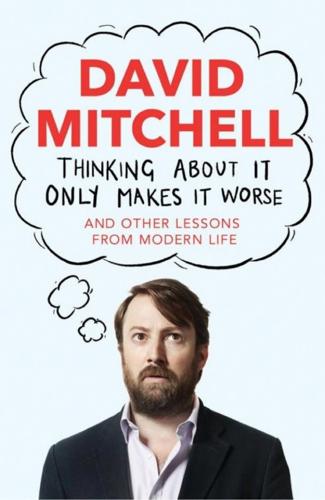
Thinking About It Only Makes It Worse: And Other Lessons From Modern Life
by
David Mitchell
Published 4 Nov 2014
First, it’s funny – in the way a pratfall is funny. It’s a physical misfortune that’s happening to somebody else. The sweaty, panting discomfort, the glazed-over expression of dread, the pink-and-cerise-pocked face, the hilariously slow rate of progress that has nevertheless proved so exhausting, the thought of the cakes and ale that went before – you want to laugh. And the runner knows you want to laugh. Worse still is the other simultaneous response: sympathy, empathy, even pity. Most of us have been there or think, if we broke into a run, we’d soon find ourselves there. But those feelings are seldom welcomed, any more than it is soothing when you bump your head for someone to say: “Ooh, that must have hurt!”
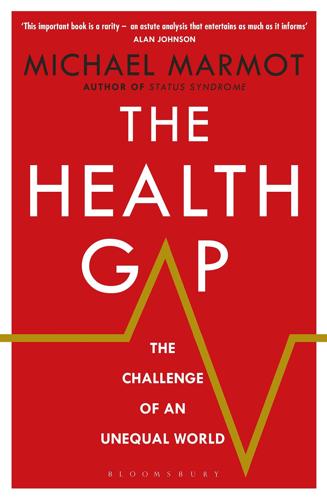
The Health Gap: The Challenge of an Unequal World
by
Michael Marmot
Published 9 Sep 2015
There is ample disagreement as to what are ‘reasonable means’. But it focuses the argument. Why is this fundamental? Because if people are suffering from ill-health in ways that could be remedied but are not, that is quite simply unjust. 2 Whose Responsibility? Dost thou think, because thou art virtuous, there shall be no more cakes and ale? William Shakespeare, Twelfth Night (Act II, Scene iii) Here are ten top tips for health. This list was published in 1999 by England’s Chief Medical Officer, but it differs little from the kind of advice you would receive from any public health source in a high-income country. 1.Don’t smoke.
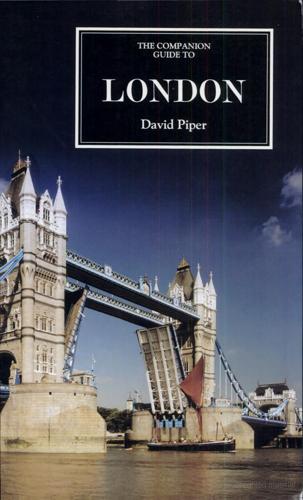
The Companion Guide to London
by
David Piper
and
Fionnuala Jervis
Published 2 Jan 1970
Their present usefulness may not be immediately apparent; the public usually sees or reads of them as they go about some archaic or picturesque ceremony like the Vintners walking to church in procession, preceded by a wine porter in smock and top-hat clearing the way with a besom, or the Stationers distributing cakes and ale in the crypt of St Paul’s of an Ash Wednesday; or reports of great dinners stiff with white shirts and clanking with decorations in murmurous well-fed, well-wined assembly. But they still exercise considerable power; if you want to be somebody in the City civic hierarchy you must first be a liveryman.

Lonely Planet Wales
by
Anna Kaminski;Hugh McNaughtan
Finish off in one of its many enticing cafes and pubs, or explore Mumbles Head, snapping photos of the late-18th-century lighthouse offshore. 6Drinking & Nightlife PilotPUB (%07897 895511; www.thepilotofmumbles.co.uk; 726 Mumbles Rd; hnoon-10pm; W#) Stained glass, polished wood and a roaring fire set an immediately comforting tone, but it’s the beer that the punters are here for. Sample from the Pilot’s own microbrewed range or choose from its select set of guest ales. Cakes and AleWINE BAR (%01792-363828; www.cakesandale.wales; 29 Newton Rd; h10am-10pm Wed-Sat, to 5pm Sun) We confess to gravitating to Cakes and Ale because the sign promised to offer our favourite things: why not, indeed, bridge the gap between cake-stacked cafe and cool evening bar? But it’s actually the wine that impresses more than the beer: a discerning old world–new world selection to enjoy with tapas or burgers in friendly, fun-loving environs. 7Shopping Lovespoon GalleryGIFTS & SOUVENIRS (www.welshlovespoon.com; 492 Mumbles Rd; h10.30am-4pm Mon-Sat year-round, also Sun Easter-Sep) If your curiosity has been fed by that classic Welsh souvenir, the Welsh love spoon, then this is your place.
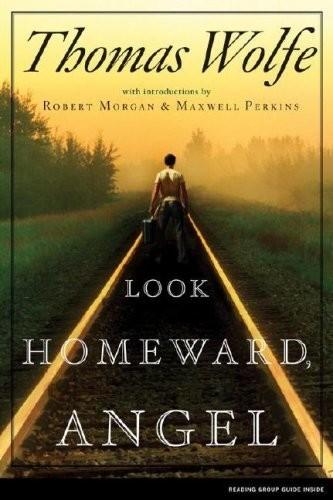
Look Homeward, Angel
by
Thomas Wolfe
Published 9 Oct 2006
On Sunday for several years, he had bathed, brushed, arrayed his anointed body in clean underwear and shirting and departed, amid all the pleasurable bustle of Sunday morning, for the Presbyterian Sunday School. He had by this time been delivered from the instruction of the several spinsters who had taught his infant faith the catechism, thegoodness of God, and the elements of celestial architecture. The five-cent piece which formerly he had yielded up reluctantly, thinking of cakes and ale, he now surrendered more gladly, since he usually had enough left over for cold gaseous draughts at the soda-fountain. In the fresh Sunday morning air he marched off with brisk excitement to do duty at the altars, pausing near the church where the marshalled ranks of the boys' military school split cleanly into regimented Baptists, Methodists, Presbyterians.